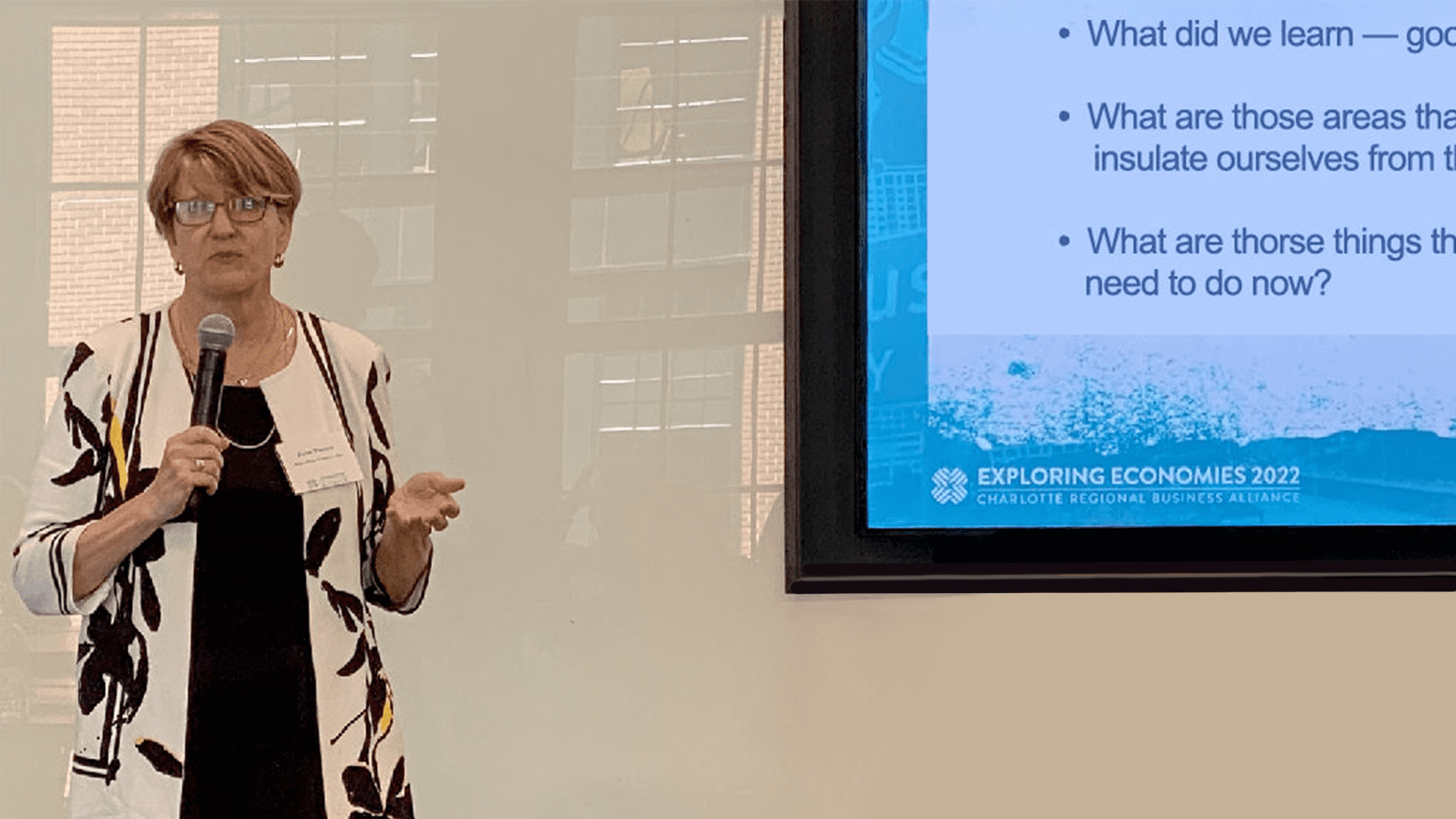 This month, more than 120 leaders from the Charlotte region traveled to Austin, Texas, to explore the city’s economy, and learn from each other and their business, civic and political counterparts. The annual trip is hosted by Charlotte Regional Business Alliance and provides area leaders an immersive experience focused on a number of topics including advocacy and innovation, mobility and infrastructure, and affordability and housing.
This month, more than 120 leaders from the Charlotte region traveled to Austin, Texas, to explore the city’s economy, and learn from each other and their business, civic and political counterparts. The annual trip is hosted by Charlotte Regional Business Alliance and provides area leaders an immersive experience focused on a number of topics including advocacy and innovation, mobility and infrastructure, and affordability and housing.
DreamKey Partners president, Julie Porter, was among the group and had the honor of moderating a breakout panel discussion on Building Better Futures: Affordability. The session featured three speakers: Eric Goff, owner of Eric Winters Goff LLC, an infrastructure consulting firm; Nefertitti Jackmon, community displacement prevention officer with the City of Austin; and Terry Mitchell, president of Momark Development, a for-profit residential and mixed-use developer.
During the hour-long discussion, Julie asked questions about the exponential growth Austin has seen over the years and its impact on the city’s affordability, including business and talent attraction and retention. Just as Charlotte has experienced significant growth in recent years, Austin is growing at a pace that required the city to adjust its zoning strategies and step up efforts to build affordable housing through a local housing bond.
Terry Mitchell shared that the only way to increase affordability and housing inventory is to build up and go smaller. Vertical developments require less land, which is scarce in both Austin and Charlotte, and is made possible by appropriate zoning measures. Additionally, he suggested that smaller units are increasingly attractive to individuals and families who can’t afford Austin’s quickly escalating housing prices. He noted that many homebuyers are looking for 1,000-square-foot properties which encourages density and helps with affordability.
Transportation in Austin continues to be a challenge, something Charlotte is also facing. Expanding light rail lines was a common theme and directly correlates with accessibility and affordability. As part of the Austin’s transportation bond to expand light rail options, the city set aside $300 million for displacement prevention activities including buying land for affordable housing.
